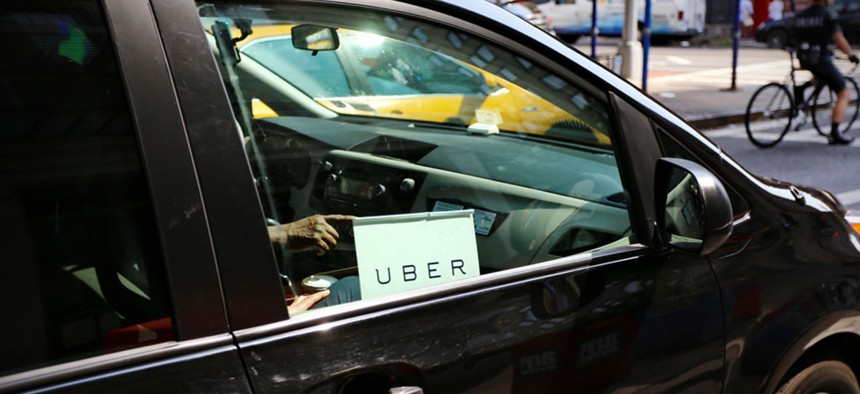
MikeDotta / Shutterstock.com
Congress Wants Agencies to Use the Sharing Economy for Rides
The House is set to debate an amendment that would use ridesharing services like Uber to help cull the government’s vehicle fleet.
Rep. David Schweikert has a new strategy to get the federal government to cut down on its massive fleet of 630,000-plus cars: summoning an Uber.
The Arizona Republican has pitched a proposal that would get three agencies to start reducing the number of government-owned cars by having them explore ride-sharing. All told, his idea — offered as an amendment to the House transportation bill — would reduce the fleets at three agencies by 10 percent.
But Schweikert said that, if the amendment passes, it’s also a way to start talking about “bringing the new economy into government efficiency.”
“There’s a long term goal here of can we use information to allocate capital resources better,” said Schweikert, who came to the House as part of the Tea Party wave of 2011. “This is sort of the first step of trying to sell the idea.”
Under the amendment, three departments — Agriculture, Interior and Energy — would launch a pilot to trim 10 percent of their vehicle fleet and replace it with a ridesharing solution. The language specifically says that the departments can use their discretion to “increase the use… of commercial ride-sharing companies,” but he said it’s not as simple as just getting everyone to sign up for Uber or Lyft.
“We use the term ridesharing, but it’s more than that,” he said. “Would it be a Zipcar-type model, would it be two people using the same car, would it be a shared vehicle or shared route? I don’t really care, as long as we get more efficient.”
The three departments were chosen because they have large vehicle fleets relative to their staff.
The amendment is one of more than 80 set for debate Wednesday on the six-year transportation bill.
The U.S. General Services Administration last October launched a pilot program with four vendors, including Enterprise and Hertz, to explore whether a car-sharing service could help reduce costs in the federal fleet by letting employees simply check out cars from a larger pool for shorter trips.
Schweikert said that this is just one way he’s trying to bring aspects of the sharing economy into the federal government, even if it can be an uphill battle in the traditionally non-disruptive Congress.
“A lot of my brothers and sisters in there just stare at me blank when I walk through using information as part of the new economy and say ‘I hadn’t thought about it,’” he said, gesturing to the House floor. “I think not enough of us have talked about it.”
(Image via MikeDotta / Shutterstock.com )






